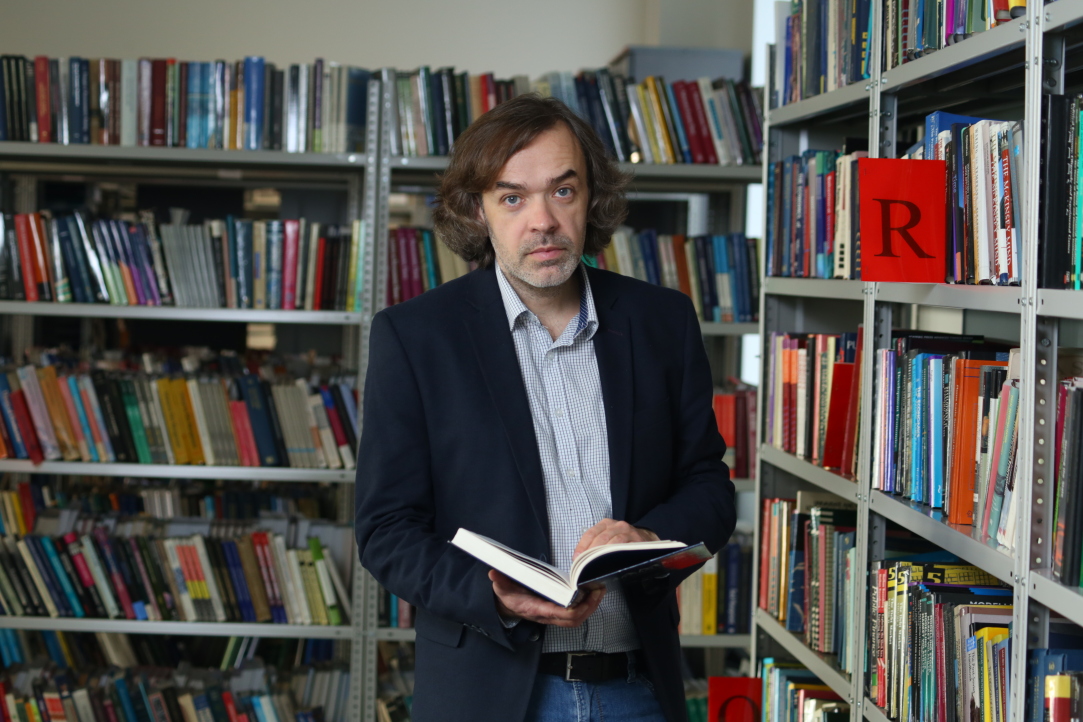
AI Helps Scientists Generate Z-flipon Map
Researchers from HSE University and Sber Artificial Intelligence Lab are using AI to predict the location of DNA fragments in the genome which can flip over and form a mirror structure known as Z-DNA. The scientists have found that these DNA fragments overlap with known mutations which can cause severe hereditary diseases and impact a person's health, height, weight, cholesterol levels, and even determine their hair colour. The study findings have been published in Life Science Alliance.

Russian Researchers Develop Software to Predict the Location of Elements of the Human Genome
Researchers at the HSE Artificial Intelligence Centre have created software for predicting the location of elements of the human genome. The scientists used deep learning methods based on complex data on various human molecular components. The research followed the objectives of the ‘Artificial Intelligence’ federal project of the ‘Digital Economy’ national project.

‘Thinking Up Auctions Is Extremely Interesting’
Oleg Baranov is a graduate of Moscow State University, the New Economic School, and the University of Maryland. He also lectured and ran a popular course on market design at the University of Colorado. He recently passed review for a tenured position at HSE University, and served as the Head of the International Recruiting Committee at the Faculty of Economic Sciences in the 2022–2023 academic year. He will also begin teaching the course ‘Microeconomics 2’ on the HSE and NES Joint Programme in Economics in September 2023. In his interview, Oleg talks about auctions, studying for a PhD, and international recruiting.

HSE Scientists Unveil New Findings Regarding Stability of Communication Systems
Researchers from the International Laboratory of Dynamical Systems and Applications at the HSE Campus in Nizhny Novgorod have discovered that the use of systems with hyperbolic solenoid attractors and repellers can lead to issues in the transmission of communication signals. The findings of this study have been published in Results in Mathematics. The research was financed by a substantial grant from the Russian Government as part of the 'Science and Universities' National Project and a further grant from the Russian Science Foundation.

Project Team of ‘Success and Self-Sustainability of the Individual in a Changing World’ Wins Russian Science Foundation Grant
Researchers from HSE University will receive funding from the Russian Science Foundation to study such forms of student employment as freelancing, self-employment, and entrepreneurship, all of which have been actively developing in recent years. The research will shed light on the new opportunities and challenges encountered by students and early-career specialists in the labour market. It will also aid in the development of effective strategies for their successful adaptation and development.

HSE Researchers Question the Correctness of Experiments Denying Free Will
Neuroscientists from HSE University have criticized the famous studies that question the free will of our decisions. You can’t shift responsibility for your actions to the brain. The results of the new work were published in the Neuropsychologia journal.

‘I Don't Even Know What I Like More: Running or Working’
Sergey Stepanov is an Associate Professor at ICEF and the School of Finance. He is also the Academic Supervisor of the HSE/NES Programme in Economics, a joint programme that teaches students fundamental knowledge of economics, modern methods of economic analysis, and mathematical methods for solving economic tasks. Sergey spoke to Olga Krylova about the joint programme, his research work with colleagues and students, and his second big passion—running.

HSE Scientists Investigate Third-Party Punishment for Unfairness
HSE researchers have examined the brain's reaction to violations of social norms and calculated a behavioural index to assess an individual's sensitivity to unfairness. This index can potentially be used to develop individualised rehabilitation programmes for patients with various types of behavioural disorders. The study has been published in Neuroscience Letters.

HSE University and Sber Researchers Increase Speed of Gradient Boosting Algorithm
A group of researchers from the HSE Faculty of Computer Science and the Sber AI Lab has increased the speed of gradient boosting, one of the most efficient machine learning algorithms. The proposed approach will make it possible to solve classification and regression problems faster. The results of the work were presented at the NeurIPS conference.

Conserved microRNAs and Flipons Shape Gene Expression
An international team, including researchers of the HSE Faculty of Computer Science, has discovered a new mechanism of gene regulation in which microRNA assumes a central role. These non-coding molecules influence the DNA regions within genes that govern embryonic development. The study contributes to our understanding of the mechanisms underlying the diverse genetic programs found in complex multicellular organisms. The paper has been published in the International Journal of Molecular Sciences.


Applications are submitted until August 17, 2025